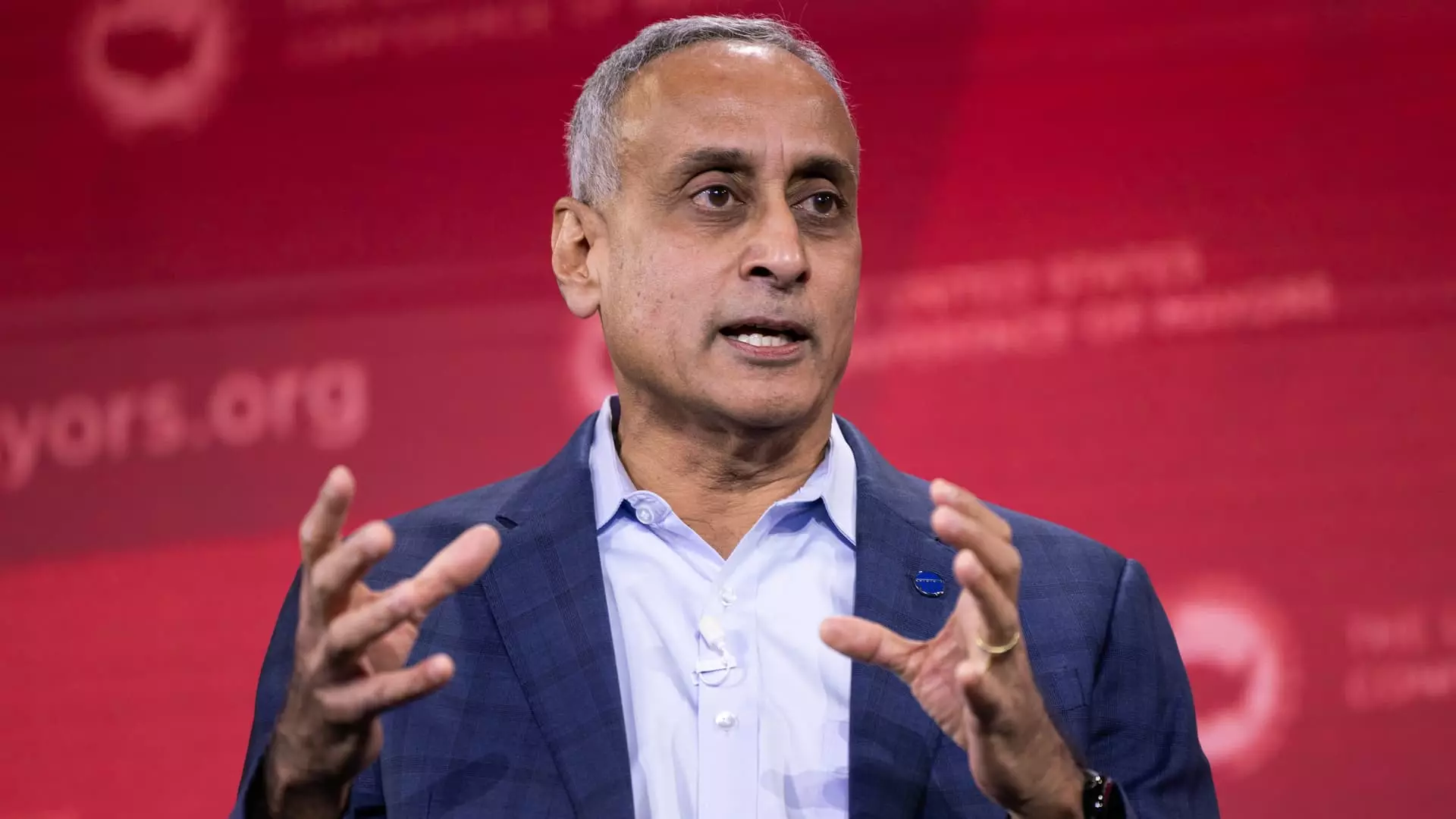In a significant overhaul of its leadership structure, Google has announced the appointment of Nick Fox as the new head of the company’s search and ads division, succeeding Prabhakar Raghavan. This transition was disclosed by Sundar Pichai, the CEO of Alphabet, who emphasized Raghavan’s new position as chief technologist after 12 years of influential contributions. The strategic reshuffle underscores Google’s ever-evolving strategy in battling fierce competition in the artificial intelligence landscape and navigating ongoing antitrust issues surrounding its core services.
This leadership change comes at a pivotal moment for Google, as it intensifies its focus on AI technologies and seeks to outpace rivals. Raghavan, who has been a prominent figure in steering the Knowledge and Information unit since 2018, will now focus on providing technical leadership alongside Pichai, signaling a shift towards a more innovative and technologically driven culture at Google. According to Pichai, Raghavan’s expertise and experience will bolster efforts to advance the company’s mission of technological excellence.
Nick Fox is not a newcomer to the Google ecosystem; having been with the company since 2003, his extensive background positions him well to lead the transition. Before this new role, he served as vice president of product and design for Google Assistant. His tenure saw him shaping the company’s roadmaps in AI products, enabling collaborations that have distinguished Google from its competitors. This continuity in leadership is crucial for navigating the complexities of search and ad technologies during a time where rapid evolution is necessary.
Fox’s ascent comes at a time when Google is being pressured to adapt swiftly to market changes. Earlier this year, Raghavan urged employees to brace for a “different market reality,” invoking the notion that traditional paradigms are no longer sufficient in today’s landscape. This acknowledgement reflects a broader industry shift that necessitates urgent adaptations and innovations.
In tandem with these leadership changes, Pichai has also revealed structural adjustments within the company’s organizational framework. Google’s Gemini application team will now report directly to Google DeepMind, led by AI expert Demis Hassabis. This move is designed to facilitate better communication and swift deployment of AI models crucial for enhancing user experience on direct-to-consumer platforms.
Moreover, the Assistant teams, which have been traditionally associated with device and home experiences, will transition to the Platforms and Devices unit. This realignment is intended to foster a closer relationship between products and the teams developing them, potentially leading to more cohesive and innovative product offerings.
Ultimately, these shifts reflect Google’s commitment to maintaining its competitive edge in an era dominated by advancements in artificial intelligence. By reassigning key personnel and reorganizing teams, the company is strategically positioning itself to respond more effectively to both market dynamics and legal challenges. As it embarks on this new chapter, the focus on innovation and agility may very well dictate Google’s path forward in an increasingly competitive technology landscape.


Leave a Reply